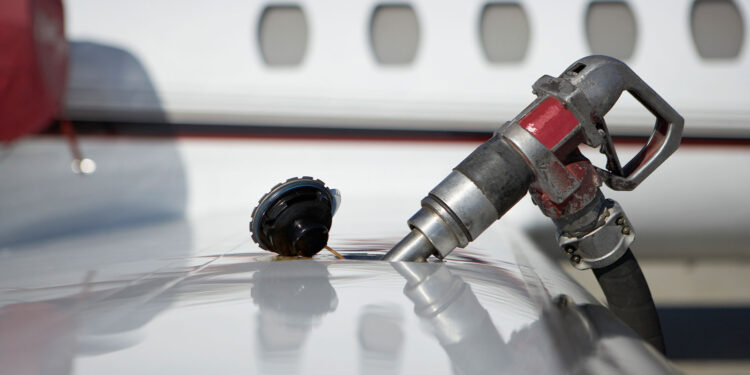Business Aviation in Venezuela Series: Fuel, Security, and Additional Services

This is a post by author Walter Lindo. Walter is Managing Director for Universal Aviation Venezuela – Caracas. Walter is an expert on business aircraft operations in Venezuela and can be contacted at walterlindo@universalaviation.aero.
This business aviation blog post is part of a series on operating in Singapore and continues from our last article: “Business Aviation in Venezuela Series: Customs, Immigration, and Quarantine.”
When operating to Caracas (SVMI) and other destinations in Venezuela, pre-planning service requests is always best practice. Due to high local demand, short-notice requests – particularly for jet fuel, secure transport, and in-flight catering – can be problematic.
The following is an overview of what you need to know:
1. Jet fuel supply may be limited
There’s only one aviation fuel provider available in Venezuela, and it’s government-owned and -operated. All fuel uplift requests should be confirmed in advance. SVMI only has two trucks to fuel both General Aviation (GA) and government aircraft and there will be delays with last-minute requests. Other airports in Venezuela do not have these issues.
2. You may encounter fuel delays
Fuel delays depend on day-of-operation activity, but wait times may be up to one hour if there’s a lot of GA traffic, or if your fuel request was booked on short notice. If the fueler needs to refill a truck, it will take approximately 30 minutes. All commercial operations use hydrant fuel at SVMI. If a business aviation operator requests hydrant fuel, this process takes longer as aircraft need to reposition to the commercial side and wait in line.
3. There are fuel charge and tax considerations
Posted jet fuel prices are valid for one week. No taxes are added for international flights. For domestic operations, Venezuelan-registered aircraft pay a higher fuel price, but all other operators obtain the international fuel price.
4. Fuel credit can be arranged
Credit cards are not accepted for fuel payment under any circumstances, and ground handlers may not pay for operator fuel uplifts in local currency. Fuelers will accept fuel releases, along with certain major aviation fuel cards. Operators may pay cash for fuel. If you need to pay in cash, speak with your ground handler in advance so you can understand the process as Venezuela does have currency controls in place.
5. There are other fueling considerations
Prist fuel additives are not available in Venezuela. If you require Prist, you’ll have to bring your own supply and add it to the fuel yourself. Fuelers at all airports in Venezuela have test kits and will test fuel on request.
6. On-airport security is generally adequate
Airports in Venezuela have fencing, security cameras, and security patrols. Private unarmed security can be arranged for your aircraft at SVMI with 72 hours’ notification. Only one company – CAI, the airport authority – has a license to provide on-airport security services at SVMI. Other airports in Venezuela do not offer aircraft security services, but your ground handler may be able to make arrangements directly with airport authorities.
7. Ramp access is controlled
Ramp access for an aviation maintenance technician – or for a crew member other than during arrival/departure – requires an airport permit. Your ground handler can arrange these permits but needs a copy of the passport and must accompany the person at all times. Ground handlers must advise airport police whenever crew members, passengers, or aviation maintenance technicians will be escorted airside. No vendors are permitted on the ramp other than vendors who work on the ramp. On days of operation – for both arrival and departure – crew members, passengers, and luggage are security-screened.
8. Security precautions should be considered off-airport
Never use public transportation – including taxis – while off-airport. Use of rental cars is not recommended due to security concerns and aggressive traffic in the country. When off-airport it’s best to use secure pre-paid transportation or a transport service recommended by your ground handler or hotel. Personal security is not absolutely necessary for crew or passengers off-airport, but in many cases passengers do arrange for personal security while off-airport.
9. Airport in-flight catering is commercially oriented
All airport in-flight caterers are oriented toward commercial airline services. Any special requests require additional explanation. Special catering requests are best accomplished by using hotel or restaurant resources, and your ground handler will assist in coordinating this. Please note that if you choose to use a hotel or restaurant for catering, it’s best to provide the caterers with the appropriate packaging for reheating purposes. Also, note that there is a shortage of catering items in Venezuela, so it’s recommended, for short overnight stops, to bring your own special items with you. The in-flight caterer can refrigerate these items for you.
10. There are additional services limitations
All 4th-party services should be arranged and confirmed in advance, due to high traffic/demand at SVMI and limited resources at other airports. As the two GA fuel trucks at SVMI also service government flights, delays may be experienced. Plane-side pickup or drop off of passengers is not permitted in Venezuela, with exception of diplomatic flights.
Conclusion
Always keep security top of mind when operating to Venezuela. While on-airport security is generally adequate, additional precautions are always suggested when off-airport.
Questions?
If you have any questions about this article or would like assistance planning your next trip to Venezuela, contact me at walterlindo@universalaviation.aero.
Later, we’ll discuss security for Venezuela and its impact on your trip.




